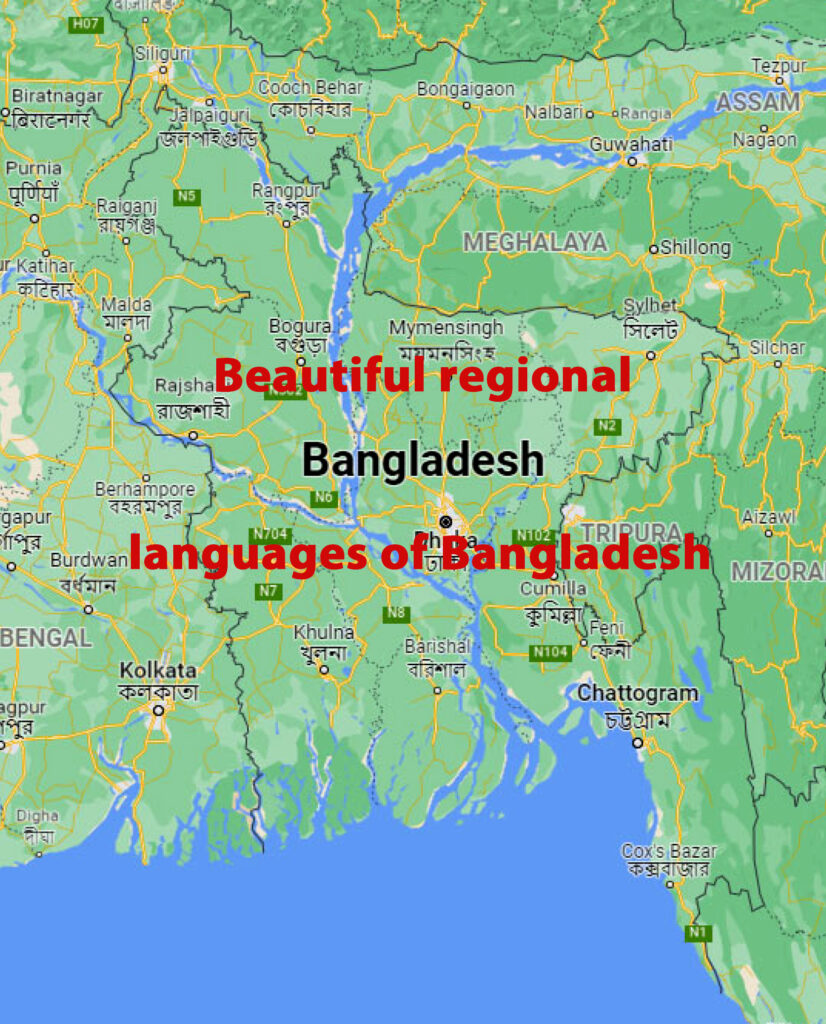
Human languages are something incredible. They enable us to communicate with each other, understand what others say or write, theories about the world, introspect to go deeper into things, transmit knowledge through generations, express feelings towards others and do thousands of other things.
Languages evolve and change through internal dynamics within a linguistic group and from outside contacts. Some external connections are low level and develop gradually while others are sudden, large-scale and life-changing that take place within a relatively short time caused by invasion, migration or through new trading opportunities. There are many other ways languages evolve, develop and change. Sometimes creative individuals within a group emerge, taking their language in a new direction through imagination, passion and synthesis.
Within larger linguistic groups, there are usually regional variations. Each region’s peculiar history causes them to vary to different degrees and in different ways. There are no set rules within which each variation takes place. In Bangladesh, there are many beautiful regional languages, and, within each, there are also sub-variations based on their particular history and the experiences of the people involved.
Unfortunately, the standard Bangla developed during the 19th Century – based on the regional language of areas near and around Kolkata – resulted in the development of a sense of exclusivity and elitism among the practitioners of the language. The developed Bangla language was called ‘Shuddo’ and elevated to a high status while downgrading all the others and calling them dialects of Bangla. This process created a sense of disdain towards the regional languages. Superiority complex, linguistic snobbery and a bit of linguistic fascism were part of the package that came hand in hand with the development of the ‘Shuddo’ Bangla language.
This is not the story of the Bangla language alone. The world is littered with linguistic elitism, disdain, fascism and snobbery.
The standard Bangla was the result, in the first instance, of some East India Company officers’ efforts to develop a standardised local language from their settlement in ‘Calcutta’ from the 1780s. The language that was created was significantly based on and influenced by the English language and English literature. However, many of the Bengali elites in Kolkata involved in the venture also acquired and internalised British class and linguistic snobbery, and their mannerism and values, which they combined with their sense of caste and zamindari background superiority, before projecting a super linguistic elitism to the rest of the regional languages of Bengal. As a result, many educated Bengalis who tried to speak in their regional tongues were seen as unsophisticated and uneducated villagers. This reality created a sense of inferiority complex and shame in them. And later, this sense of superiority complex and elitism also spread across Bengal with the spread of the ‘shuddo’ Bangla within certain people who acquired an education.
Fortunately, many young, educated Bangladeshis now are expressing pride in their regional languages. Some have been trying to record, write and engage in more sophisticated conversations in their regional tongues, which not so long ago were treated as languages of uneducated villagers.
The development of mutual respect within the regional languages of Bangladesh will introduce new linguistic dynamics in the country and help generate more richness in the regional languages of Bangladesh and in the everyday conversations in ‘shuddo’ Bangla by people around the country.
Each regional language has thousands of years of history and unique inherited knowledge and experiences. This means that they should be preserved and facilitated for development, which will help prevent the loss of heritage and cultural richness and reflect the new diverse experiences of regional peoples.
Some words and phrases from all the regional languages should be included in the ‘Shuddo’ Bangla. This way, all the regional languages of Bangladesh, through their input into the ‘Shuddo’ Bangla, will have more ownership of the language and help make the latter super-dynamic and super-rich. And the status of the regional languages of Bangladesh will also change, be respected and become more enriched.